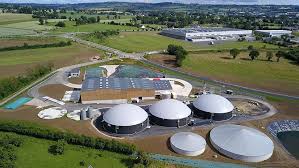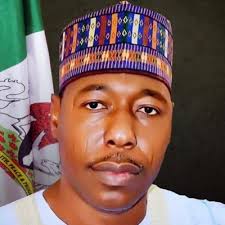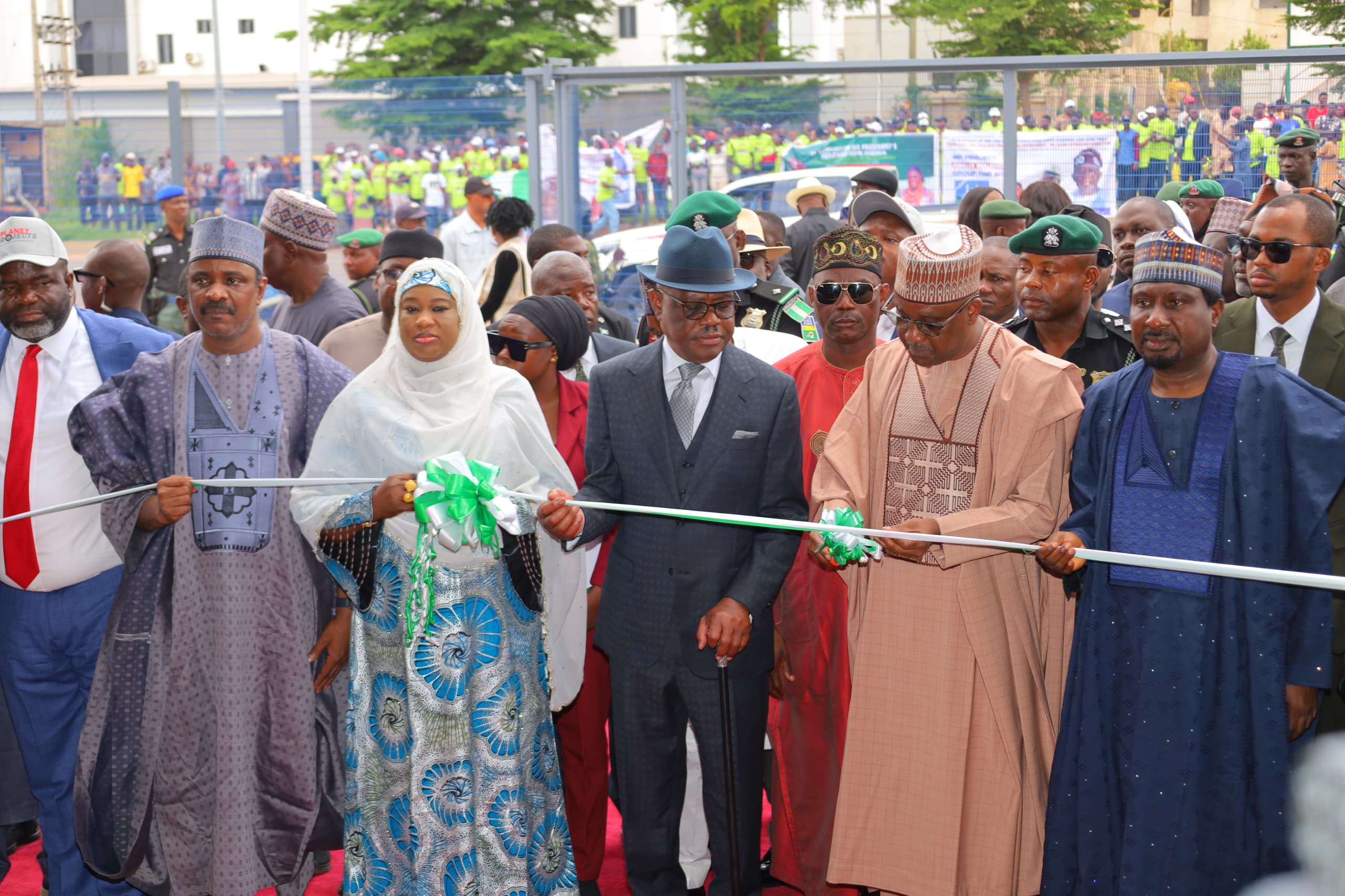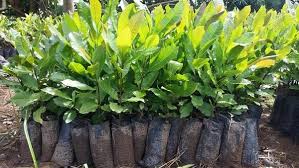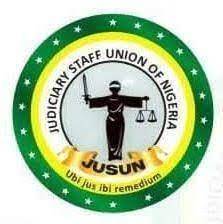132 total views today
By Abdullahi Mohammed, News Agency of Nigeria (NAN)
Recently, a soul-stirring tribute for Gov. Babagana Zulum of Borno evoked emotions at Maiduguri Maximum Custodial Centre.
The heart-warming prayers of teary-eyed inmates for the governor hinged on his incredible infrastructural achievements amidst insurgents’ attacks.
It was not about the 66 inmates that the governor granted pardon to on Democracy Day, or about the N20, 000 cash he gifted to each of the 1,280 inmates; it was not the donation of 300 bags of rice, 50 jerry cans of cooking oil and five cows to the inmates; it was about Zulum’s feats in governance.
Mr Daniel Simon, referred to as Sarkin inmates, who spoke on behalf of the inmates during the governor’s visit on Democracy Day, said what the governor had done in the area of housing and roads infrastructure in the capital city and some communities amidst attacks was unthinkable.
Simon prayed God to continue to bless the governor and grant him the opportunity to be one of those who would be favoured by God to transform Nigeria in the future as he did in Borno.
In the light of the aforementioned, Mr Dauda Iliya, the governor’s spokesperson, highlighted some of Zulum’s recent achievements.
Iliya listed the construction of 1.90 km dual road, with 3.80 km drainage and streetlight at Amb. Mahmud Ahmed Road Gwange.
“The construction of 9.30km roads network and 9.10km drainages network at Umarari/Ngarannam; construction of 3.88km road and drainage network at Farm Centre Housing Estate.’’
He said that the governor had also constructed N782 million dual carriage road network at Kashim Ibrahim University Teaching Hospital (KIUTH) and rehabilitation of 3.10 km single carriage road within the Kashim Ibrahim University.
“The rehabilitation and overlay of 37.54km dual carriage road Lagos Street, from Welcome to Maiduguri Gate through Bama Road to Custom Flyover, from Custom Flyover through Sir Kashim Ibrahim Road to West End Flyover and from West End Flyover through Baga Road to Gubio Road Junction.
“The rehabilitation and overlay of 4.80 km dual carriage road from West End Flyover through Sir Kashim Ibrahim Road to Race Course Roundabout to Shehu’s Palace Roundabout, 5.56 km Muhammadu Indimi Way and 960m Shehu Laminu Way from Post Office to Bolori Roundabout.
“The completion of 3 span flyover bridge with service length at West End Sir Kashim Ibrahim Road,” the spokesperson said.
Some international partners had, in December 2024, appraised Zulum’s achievements at the inauguration of 1,900 housing units used in resettling the 1,874 households affected by insurgency in Monguno.
Annet Günther, the German Ambassador to Nigeria, described Zulum’s approach to the resettlement efforts as realistic to achieving peace, security and stability in the North-East.
Günther said there was need for those working towards peace–Zulum, UN or the international partners, like Germany– to have perseverance and determination.
For Elsie Attafuah of the United Nations Development Programme (UNDP) Nigeria, the state and the international partners’ joint efforts had been yielding results in the North-East, Borno in particular.
Attafuah said that the UNDP had been focusing on enhancing community security, safety, rehabilitating essential infrastructure, basic services and revitalising local economies for sustainable recovery.
“Through these efforts, we have restored trust between community and the government, laying a solid foundation for reintegration, economic renewal and long-term peace.
“This project (housing) represents a model of collaboration between the Borno Government, UNDP, our donors, especially the Government of Germany, UK, Netherlands, Sweden, EU and many more to support this initiative.
“UNDP, through Regional Stabilisation Facility (RSF), that is the stabilisation facility, supported 500 housing units, 900 semi-permanent shelters and 375 solar-powered streetlights which will improve security particularly for the weak and the most vulnerable.
“Building peace is not easy; it takes continued efforts and it does not come overnight; I have just been told as for how many years we have been working on this already.
“This housing project is also a great example of collaboration between the Government of Borno and international partners.
“Funding for the housing units comes from both the state government and international partners,” Günther said.
The German diplomat said the houses and the shelters built in Monguno for the returnees and the survivors were contributions towards building peace.
Attafuah corroborated Günther’s commendation of Zulum’s administration, noting that the housing project aligns with UNDP’s regional stabilisation effort, working towards peace restoration in communities in Lake Chad area.
In spite of the challenges, Zulum said his administration had succeeded in resettling more than 2.5 million people affected by the Boko Haram conflicts.
He said that before the end of his tenure in 2027, his government would close all IDPs camps in the state.
Worthy of mention, Zulum said that the German Government funded the construction of 500 permanent and another 900 semi-permanent shelters, while the Borno Government constructed the remaining 500 houses and provided amenities such as a health centre and potable water, among others.
“A Letter of Agreement (LOA) was signed between Borno Government and UNDP in 2020 under the RS German initiative to start the construction of 500 housing units.
“In August 2023, another LOA was signed under RSF German reintegration funds aimed at completing the 500 permanent housing units, providing an additional 900 semi-permanent shelters, and installing 375 solar streetlights,” the governor said.
He said in addition to the efforts, the Borno Government had also constructed 500 permanent housing units and provided toilets for the temporary shelters, bringing the total number of houses constructed to 1,900.
According to him, the accommodation will play a crucial role in the voluntary decongestion and eventual closure of some IDP camps in Monguno, ensuring a smoother transition for resettling families.
Zulum said that the construction of 500 two-bedroom self-contain flats, 10 block two-story building of 72 three-bedroom flats Metro housing estate in Maiduguri was aimed at cushioning the effects of accommodation costs among the civil servants both at federal and state levels.
Of note, there is scepticism from the returnees in Monguno regarding their resettlement plans, but their body language speaks volumes.
To this end, the governor told those of them who were not ancestrally from Monguno that his government would allow them to continue to stay in the camps for the time being, but they would still have to return to their places of origins.
Zulum pointed out that the objective of his resettlement efforts was to comfort the survivors in their permanent homes and engage them in farming and other business activities in order to be self-reliant without depending on donor’s aid.
He said that the majority of the survivors in IDP camps were women and children, mostly young mothers between the age of 15 years and 17 years who were born and brought up in the IDPs during the conflict period of more than 15 years.
The governor said no fewer than 1,874 IDP families from 14 communities benefited from his housing project, which was achieved about seven months ago.
He also said that each of them (beneficiary) received food and non-food items, N50,000 cash for the household heads and another N20,000 for each housewife.
A government official said on anonymity that children (young mothers at IDPs) took IDP camps as their permanent home, for they did not even know about life outside IDP camps.
“Ironically, nobody can tell the whereabouts of the relatives of those women and children in IDP camps –15 years after the peak of Boko Haram conflict, not even the parents of the young mothers, whose true identity is questionable because of the circumstances at which they were born.
“The young mothers themselves were either brought into camps as orphans or their own mothers if still alive, got their pregnancy out of wedlock,’’ he said.
Observers say Zulum deserves commendation for remarkable accomplishments in infrastructure in spite of lingering onslaughts from insurgents.
They say that while security operatives also deserve commendation for holding sway, efforts should be stepped up towards restoring peace and stability in Borno.(NANFeatures)
***If used, please credit the writer and the News Agency of Nigeria.




